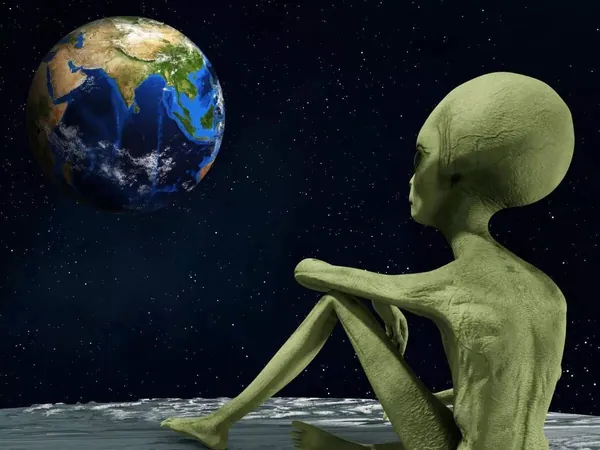
Are We Alone in the Universe? Scientists Suggest Earth Might Be Trapped in a Cosmic Void
2025-09-05
Author: Daniel
For centuries, the human imagination has been captivated by the possibility of intelligent extraterrestrial life lurking among the stars. Yet, despite the overwhelming number of galaxies and stars, concrete evidence of alien civilizations remains elusive. But new insights from scientists might hold the key to this cosmic mystery: Earth may be ensconced within a colossal cosmic void—an expansive, sparse region of the universe.
This eye-opening theory was presented at the National Astronomy Meeting, led by Dr. Indranil Banik from the University of Portsmouth. If true, it could dramatically alter our understanding of the universe's structure, as our planet could be uniquely isolated from denser cosmic regions, creating an impression of solitude or even 'ostracization' in the grand cosmic scheme.
The Underlying Mystery of the Cosmic Void
Dr. Banik and his team have proposed that this local void could span approximately one billion light-years and is about 20% less dense than the average universe. This significant lack of matter may distort our perception of how galaxies move, suggesting a faster expansion of the universe than actually exists.
Solving the Hubble Puzzle
Interestingly, this concept of a nearby cosmic void might also help unravel the puzzling Hubble Tension, the inconsistency in measuring the universe's expansion rate. While distant galaxies indicate a slower expansion, our local measurements suggest a quicker pace. Dr. Banik posits that if the Milky Way resides within this colossal underdensity, gravitational forces from denser regions nearby could create the illusion of faster local velocities.
"This model is far more plausible than a void-free scenario," Dr. Banik stated, underlining the alignment of his findings with evidence from baryon acoustic oscillation data left over from the Big Bang.
Impacts on Cosmology
If verified, this local void theory would challenge the widely held belief that the universe is uniform on large scales. Furthermore, it could change predictions about the universe’s fate, particularly regarding the so-called 'heat death' when energy becomes evenly distributed, leaving little cosmic activity.
Life in a Cosmic Bubble?
While the thought of humanity residing in a cosmic void may evoke mixed feelings, Dr. Banik's research suggests that our region of the universe may indeed be lonelier than previously considered. The effects of this void extend to our perception of the cosmos, although it does not directly point to alien interactions or isolation.
Future studies, especially those involving supernova data, will be essential to substantiate this theory and explore its ramifications for cosmology. For now, the concept of Earth sitting in a giant cosmic void presents a tantalizing possibility that could transform our understanding of the universe.


 Brasil (PT)
Brasil (PT)
 Canada (EN)
Canada (EN)
 Chile (ES)
Chile (ES)
 Česko (CS)
Česko (CS)
 대한민국 (KO)
대한민국 (KO)
 España (ES)
España (ES)
 France (FR)
France (FR)
 Hong Kong (EN)
Hong Kong (EN)
 Italia (IT)
Italia (IT)
 日本 (JA)
日本 (JA)
 Magyarország (HU)
Magyarország (HU)
 Norge (NO)
Norge (NO)
 Polska (PL)
Polska (PL)
 Schweiz (DE)
Schweiz (DE)
 Singapore (EN)
Singapore (EN)
 Sverige (SV)
Sverige (SV)
 Suomi (FI)
Suomi (FI)
 Türkiye (TR)
Türkiye (TR)
 الإمارات العربية المتحدة (AR)
الإمارات العربية المتحدة (AR)